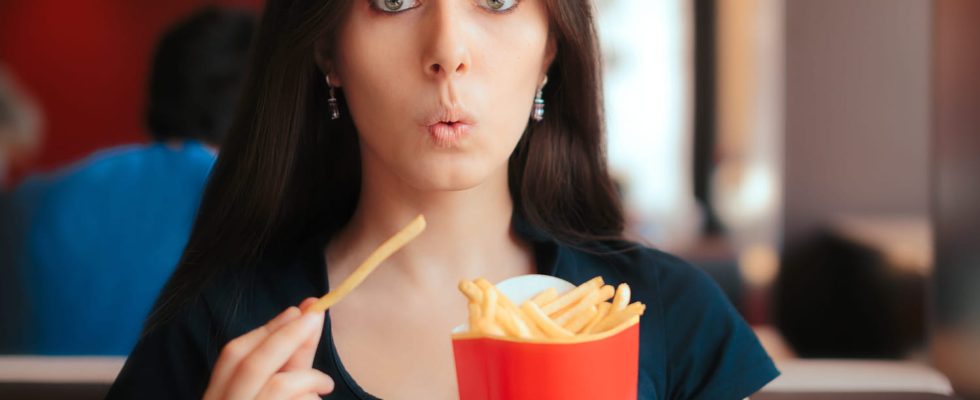Foods all contain calories, but not all calories are created equal. Empty calorie foods should be limited. For what ? What misdeeds? Are they getting fat? Definition, list and advice from our nutritionist.
Foods all contain calories, but not all calories are created equal. The so-called “full” calories (such as vegetables, dairy products, starchy foods, etc.) provide nutrients and vitamins, essential to the bodywhile the empty or hollow calories have no nutritional value interesting. So what are empty calorie foods? Should they banish ? THE restrict ? They do grow ? Examples and insight from our nutrition expert.
What is the definition of an empty calorie food?
“An empty calorie food is a food that provides calories but whose nutritional contribution is not interesting for the body.explains Raphaël Gruman, dietitian-nutritionist. Which means the food is caloricsometimes even very caloric, but thatit does not contain micronutrients (vitamins or minerals or fatty acids) interesting for the organism, but simply fats or sugars which promote weight gain“. On the contrary, a full-calorie food has a high nutritional density and provides vitamins, mineral salts, fibres, essential fatty acids, the good amino acids… This is for example the case of whole grains, fruits, vegetables, meats, fish, vegetable oils, dairy products, oilseeds…
For example : a Mars bar contains about 200 caloriesas 2 slices of wholemeal bread. Problem: a Mars bar contains mainly sugar (62g/100g) and fat (17g/100g), in other words, not very nutritious, whereas 2 slices of wholemeal bread are rich in fiber (8.8g/100g ), protein (17% of the total in kcal), phosphorus (254 mg/100 g), magnesium (67 mg/100 g), iron (2.2 mg/100 g)…
What is the list of empty calorie foods? Examples
Empty calorie foods are usually fatty, sweet and industrial products such as:
- sodas
- Industrial fruit nectars
- Alcoholic beverages (beer, wine, spirits)
- Fast food products such as pizza, hamburger
- Fried foods (fries, crisps)
- Sweets, sweets…
- Store-bought cakes, pastries and biscuits
- Industrial sauces such as ketchup, barbecue sauce…
- Commercial refined grains…
Why are they bad for health?
Obviously, food is above all a question of balance. You should neither completely banish empty calorie foods, nor consume too many of them at the risk of creating in a sense of frustration or in the other orders food. So, if you can eat them from time to time because they are fun, eating empty calorie foods too regularly can lead to:
- A weight gain (with all the problems that entails: overweight, obesity, cholesterol, diabetes, hypertension…)
- Of the cardiovascular problems
- Of the nutritional deficiencies (because they do not contain enough vitamins or minerals)
- Constipation issues…
To function well, the body needs diversity and an adequate supply of nutrients and minerals. We therefore recommend:
- Reduce consumption of industrial products
- Read the labels (pay particular attention to sugar, salt)
- Favor “homemade” preparations based on raw products
- Avoid snacking between meals
Do empty calorie foods make you fat?
Yes of course, answers our expert. “These foods are high in calories..
Empty calories or hollow calories: is it the same?
“Hollow calories are just another name for empty calories.“, replies Raphaël Gruman.
What is the difference with a negative calorie?
A so-called negative calorie food, “It is a food that requires more energy from the body to digest it that it does not provide calories. Low calorie foods such as endive, green beans, cucumber, asparagus, Konjac pasta… are negative calorie foods“, lists our interlocutor.
Is alcohol empty calories?
Alcohol is considered an empty calorie food because it contains sugar and ethanolin other words, no nutrients of interest to the body.
Thanks to Raphaël Gruman, dietitian-nutritionist.
